The Maharashtra government is making a historic decision regarding caste-based reservations in the state today. This groundbreaking move could transform educational and employment opportunities for millions across the region. Community leaders have welcomed this development after years of sustained advocacy efforts.
Understanding the Historic Merger Decision
State authorities have agreed to merge the Maratha and Kunbi communities under a single classification system. This merger would grant combined OBC status to both groups, ending decades of separate categorisation. The decision comes after extensive consultations with community representatives and legal experts alike.
The Kunbi community already enjoys Other Backwards Class benefits under existing state policies nationwide. Maratha community members have long sought similar recognition through various legal and political channels. This merger represents a compromise solution that addresses concerns from both community groups effectively.
Historical records indicate strong cultural and ancestral connections between these two communities across Maharashtra. Many families have intermarried over generations, creating complex identity questions regarding caste classifications. The merger acknowledges these deep-rooted relationships while simplifying administrative processes for government agencies.
Political Background and Community Demands
Years of political movements have shaped this decision through sustained pressure from community organisations. Maratha activists have organised numerous protests demanding reservation benefits similar to those of other backwards communities. The merge proposal emerged as a viable solution to address these long-standing grievances.
Previous attempts to grant Maratha reservations faced legal challenges in various court systems nationwide. Supreme Court rulings have created strict guidelines for reservation policies that states must follow carefully. This merger approach attempts to work within existing legal frameworks while meeting community demands.
Electoral considerations also play a significant role in this decision, given Maharashtra’s diverse voter base. Both communities represent substantial voting blocs that influence election outcomes across multiple constituencies statewide. Political parties have made various promises regarding reservation policies during recent campaign cycles.
Implementation Process and Timeline
Government officials must now draft detailed guidelines for implementing this historic merger across all departments. Educational institutions need clear instructions regarding admission processes and seat allocation under the new system. Employment agencies also require updated procedures for recruitment and promotion policies accordingly.
The implementation timeline spans several months to ensure a smooth transition without disrupting ongoing processes. Current students and job applicants will receive grandfathered protection under existing policies during the transition. New applications will follow the merged community guidelines once formal notifications are issued.
Legal documentation requirements will change significantly as both communities adopt unified classification standards. Birth certificates, caste certificates, and other official documents may need updates to reflect the new status. Government offices are preparing for an increased workload during this transition period ahead.
Benefits and Opportunities for Community Members
Educational access represents one of the most significant benefits this merger will provide to eligible families. Reserved seats in colleges and universities become available under the Other Backwards Class category. Professional courses in medicine, engineering, and other fields will see increased representation from these communities.
Employment opportunities in government services will expand considerably through this new classification system. Both state and central government positions offer reserved quotas for OBC candidates nationwide. Private sector companies with government contracts also maintain similar reservation policies for hiring.
Key areas where benefits will be most apparent include:
- Higher education admissions in state and central universities
- Government job opportunities at various administrative levels
- Scholarship programs for students from economically disadvantaged backgrounds
- Small business loan schemes with preferential interest rates
- Housing programs with subsidised rates for community members
Challenges and Potential Concerns
Administrative complexity will increase as government departments adapt to the new merged classification system. Verification processes for caste certificates may become more rigorous to prevent misuse of benefits. Training programs for government employees will ensure proper implementation across all levels of administration.
Some critics argue that caste-based reservations perpetuate social divisions rather than promoting integration among communities. Economic criteria might be more appropriate than caste considerations for determining eligibility for various benefits. These debates continue among policy experts and social reform advocates nationwide.
Resource allocation concerns arise when expanding reservation benefits to larger population groups without corresponding increases. Competition for limited seats and positions may intensify among various backwards-class communities. Balancing these interests requires careful policy design and ongoing monitoring efforts.
Long-term Impact on Maharashtra’s Social Structure
This merger decision could influence similar discussions in other states with comparable community dynamics. The precedent established here may encourage other groups to seek merged classifications for accessing benefits. State governments across India will monitor the implementation and outcomes carefully.
Social harmony between different caste groups may improve through this inclusive approach to reservation policies. Reduced competition and conflict over separate reservation demands could benefit overall community relations. The merger demonstrates that collaborative solutions are possible for complex caste-related issues.
Economic development within these communities should accelerate through improved access to education and employment opportunities. Higher literacy rates and professional qualifications will strengthen their participation in the modern economy. Entrepreneurship may also increase with better access to government support programs.
Looking Ahead: Future Implications
The success of this merger will depend largely on effective implementation and community acceptance. Monitoring mechanisms must track the actual benefits reaching intended beneficiaries over time. Regular assessments will help identify areas needing adjustment or improvement in the policy framework.
Other states with similar community dynamics may adopt comparable approaches if Maharashtra’s experience proves positive. Federal policy discussions could incorporate lessons learned from this merger experiment. The decision represents an important evolution in India’s approach to caste-based affirmative action programs.

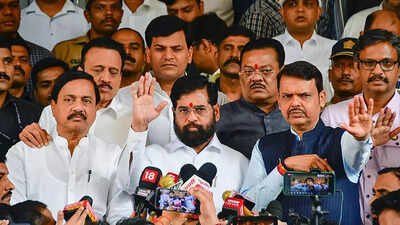
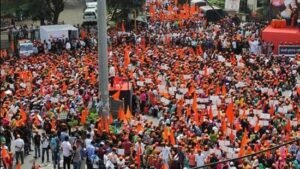
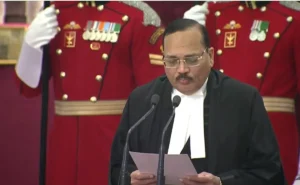
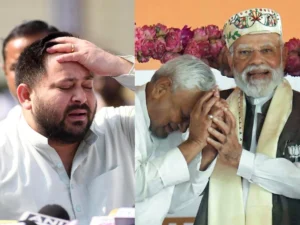
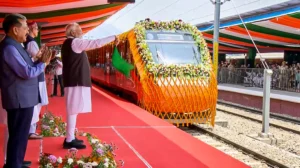


Be First to Comment